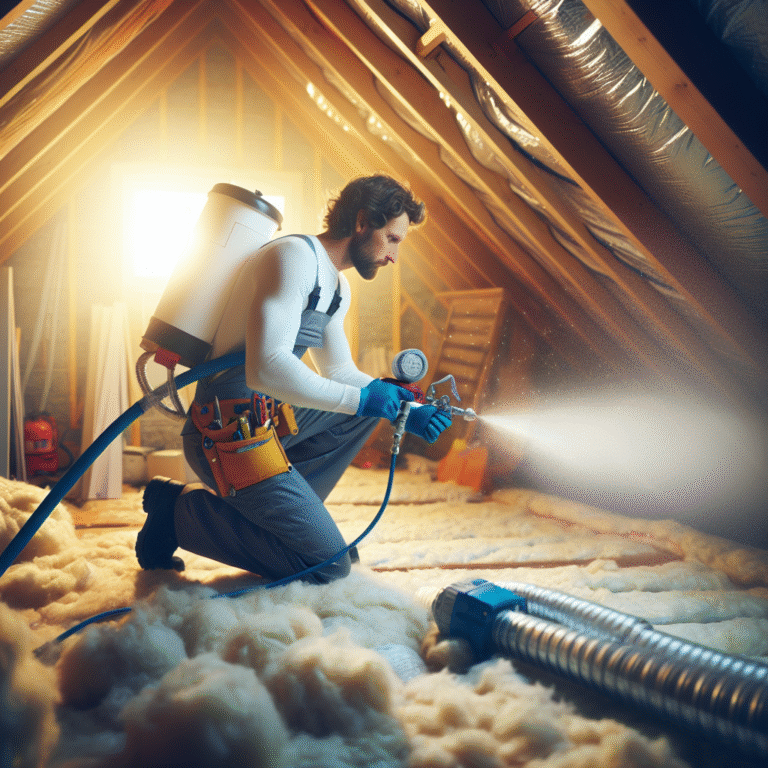H2: Introduction
Investing in powerful attic insulation in Houston is one of the smartest ways to slash energy bills and boost year-round comfort. In a city where summer temperatures regularly soar above 90°F and humidity hovers at uncomfortable levels, your attic can become a heat reservoir that forces your air conditioner to work overtime. By upgrading to high-performance attic insulation, you create a robust thermal barrier that minimizes heat gain in summer, reduces heat loss in winter, and contributes to a healthier, more efficient home.
H2: Powerful Attic Insulation in Houston: Why It Matters
Houston’s climate presents unique challenges for homeowners. Long, sweltering summers and brief but chilly winters demand an effective strategy for temperature control. Without proper insulation, your HVAC system struggles to maintain set temperatures, driving up energy consumption and monthly utility costs. Powerful attic insulation in Houston not only slows the transfer of hot and cold air through the roof but also seals gaps and voids where conditioned air might escape. This means your cooling and heating equipment runs less frequently, enjoys a longer service life, and requires fewer costly repairs.
H2: How Proper Attic Insulation Boosts Energy Efficiency
Understanding heat movement is key to appreciating the impact of attic insulation. During summer, solar radiation heats your roof surface, which then radiates warmth into the attic. Temperatures inside an uninsulated attic can climb above 130°F, turning that space into an oven. Properly installed insulation with the right R-value acts as a thermal barrier, preventing that trapped heat from spilling into living areas. In winter, the same barrier keeps warm indoor air from escaping upward.
Common attic insulation materials include:
• Fiberglass batts – affordable, easy to install, and effective when fitted correctly
• Blown-in cellulose – excellent at filling irregular spaces, made from recycled materials
• Spray foam – superior air sealing, high R-value per inch, ideal for sealing cracks and gaps
By choosing the material that best suits your home’s construction and budget, you ensure maximum energy efficiency. Furthermore, a well-insulated attic reduces humidity infiltration, improving indoor air quality and protecting your home against mold and moisture damage.
H2: Top Benefits of Attic Insulation for Energy Savings in Houston
1. Lower Energy Bills: Attic insulation can reduce heating and cooling costs by up to 20%, translating into significant monthly savings.
2. Extended HVAC Lifespan: With less workload, your air conditioner and furnace endure less wear and tear, cutting down on maintenance and replacement expenses.
3. Enhanced Comfort: Consistent temperatures throughout your home eliminate hot or cold spots, improving overall livability.
4. Improved Air Quality: Insulation helps seal out dust, pollen, and outdoor pollutants, creating a cleaner indoor environment.
5. Moisture Control: In Houston’s humid climate, proper insulation coupled with adequate ventilation prevents condensation and mold growth.
6. Increased Property Value: Energy-efficient homes command higher resale values, and attic insulation is a compelling selling point for prospective buyers.
7. Environmental Impact: By lowering your carbon footprint, you contribute to broader efforts to conserve resources and reduce greenhouse gas emissions.
H2: Q&A
Q1: What R-value is recommended for attic insulation in Houston?
A1: For Houston’s climate, an R-value between R-38 and R-60 is ideal. This range provides optimal thermal resistance against both summer heat and winter chills.
Q2: How long does attic insulation take to install?
A2: Installation times vary by material and attic size, but most homes can be insulated in one day with a professional crew.
Q3: Are there incentives for attic insulation upgrades?
A3: Yes. Local utility companies and federal programs often offer rebates, tax credits, or low-interest financing to encourage energy-efficient home improvements.
H2: Conclusion
Powerful attic insulation in Houston is more than an optional upgrade—it’s a necessity for homeowners who want to maximize energy savings, enhance comfort, and protect their properties from moisture and mold. By selecting the right insulation material and R-value, you create a durable thermal barrier that reduces HVAC strain, lowers utility bills, and extends equipment lifespan. Embrace this smart investment today to enjoy a cooler summer, a cozier winter, and a healthier, more sustainable home environment.




